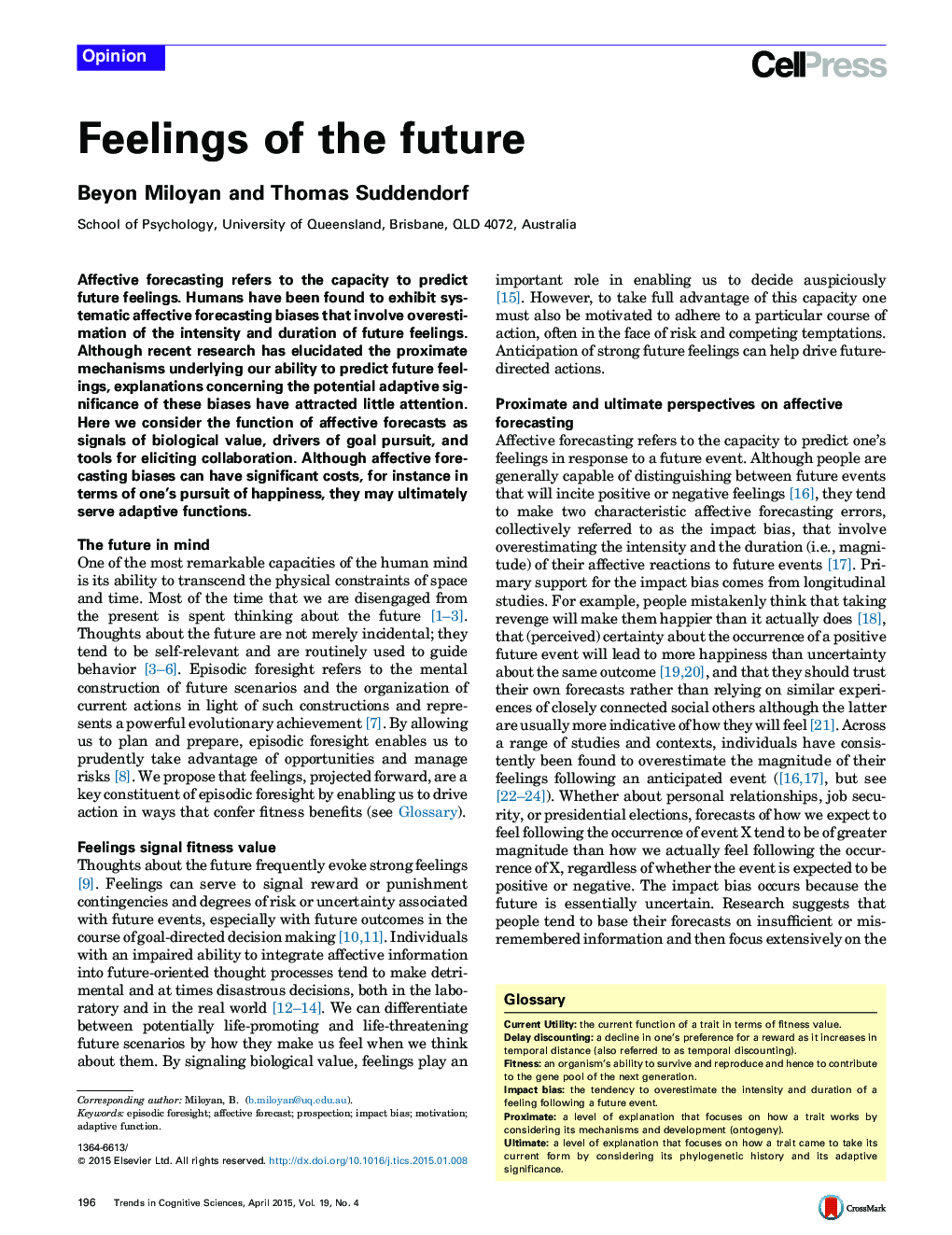| Article ID | Journal | Published Year | Pages | File Type |
|---|---|---|---|---|
| 141400 | Trends in Cognitive Sciences | 2015 | 5 Pages |
•Affective forecasting refers to the capacity to predict future feelings.•Affective forecasts overestimate the magnitude of feelings after a future event.•Previous research suggests that such mispredictions have hedonic costs.•These biases may be ultimately adaptive by motivating future-directed behavior.
Affective forecasting refers to the capacity to predict future feelings. Humans have been found to exhibit systematic affective forecasting biases that involve overestimation of the intensity and duration of future feelings. Although recent research has elucidated the proximate mechanisms underlying our ability to predict future feelings, explanations concerning the potential adaptive significance of these biases have attracted little attention. Here we consider the function of affective forecasts as signals of biological value, drivers of goal pursuit, and tools for eliciting collaboration. Although affective forecasting biases can have significant costs, for instance in terms of one's pursuit of happiness, they may ultimately serve adaptive functions.
